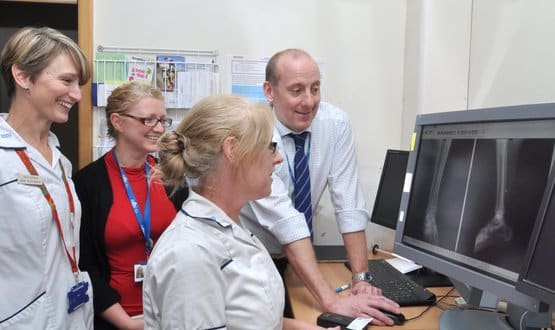MyCareCentric Epilepsy claims £250m saving to be had through wider roll-out

Pilots of a technology programme aimed at delivering better care to people with epilepsy have suggested the NHS could save £250 million a year in treatment costs by rolling out the solution more widely.
MyCareCentric Epilepsy is an integrated care solution that aims to improve treatment and quality of life for epilepsy sufferers through a combination of wearables, shared care records, machine learning and data analysis.
Backed by a consortium of healthcare organisations comprised of Poole Hospital NHS Foundation Trust, the University of Kent, the System C & Graphnet Care Alliance and Shearwater Systems, the solution captures data that can be used by clinicians to gain an understanding of a patient’s seizure patterns, and provide patients with insight into their condition.
Since launching the programme in Poole in 2016, the consortium claims users have reported an 80 per cent reduction in the time taken for medical professionals to respond to individuals when they suffer a stroke, as well as 30 per cent fewer hospital admissions.
Meanwhile, patients are also reported to have seen a three week reduction in the time it takes clinicians to respond to seizures recorded via the app. Previously, patients would have to wait until the next appointment with their doctor to get updates about their condition.
The group therefore believes its technology has the potential to reduce costs incurred by the NHS through treating epilepsy patients by as much as £250 million, while simultaneously reducing the number of outpatient appointments and freeing up time for clinical staff.
Dr Rupert Page, chief clinical information officer and consultant neurologist at Poole Hospital NHS Foundation Trust, said the solution had “the potential to revolutionise the management of epilepsy by optimising the use of currently available treatments.“
He added: “Simultaneously, the powerful insights gained from the much deeper awareness of the myriad of lifestyle and other factors which affect seizure frequency may open up entirely new areas of research or treatment.
“The timely, expert support that can be provided through this solution helps patients manage their own condition and restores to them some of the control that the diagnosis of epilepsy all too often takes away.”
MyCareCentric Epilepsy runs on the Microsoft Azure cloud platform, with patient interaction performed via a web or mobile application.
From an online dashboard, users can view their health data and get recommendations on how they might better manage their condition at home.
In the event of a seizure – detected through an activity-tracking wearable – MyCareCentric Epilepsy will send real-time alerts to carers and informs clinicians, who can then send direct guidance to the patient via the app.
Dr Jon Shaw, director of clinical strategy at System C & Graphnet Care Alliance, said: “What’s really exciting about this is that it’s a ‘first of type’ project that combines smart wearables, patient-facing applications and enterprise communication technology, which gets messages out to the care team in real time.
“Putting data into secure Azure environments gives us huge scale and ability to leverage machine learning and artificial intelligence capabilities as services and ultimately to improve patient outcomes.”
MyCareCentric Epilepsy won the ‘Best app for patients and carers’ award at the EHI Awards in November 2017.
The team is now looking to expand the programme to more volunteers and is considering if the technology could be applied to other healthcare conditions.
Suzy Foster, director of health at Microsoft UK, added: “As hospital trusts across the UK continue to face growing pressures, it’s more important than ever to invest in the right tools that focus on the patient as a person rather than the condition, delivering the most effective care and the best outcomes for patients and their families.”



